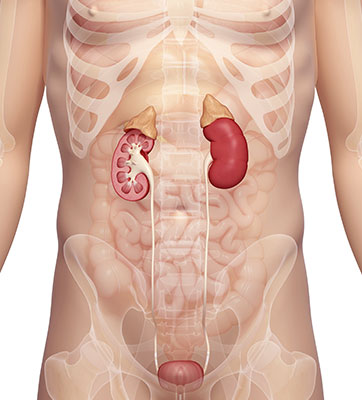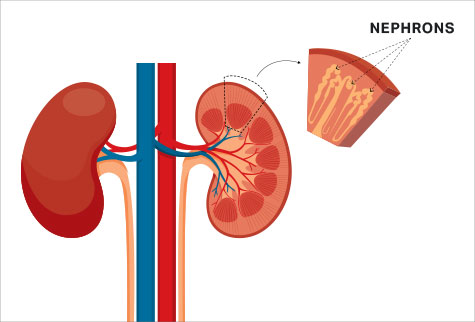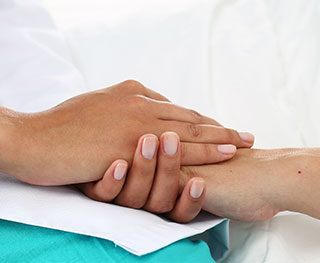kidneys do?
The kidneys play an important role in your health. Human beings are born with two kidneys, one on each side of the backbone just below the rib cage. Shaped like kidney beans, each kidney is about the size of a small fist and weighs about a quarter of a pound, or 114 grams.
All you need to stay off treatments is one kidney that works at a minimum of 20%.

NORMAL HEALTHY KIDNEYS…
and remove extra fluid to form urine
When your kidneys don’t work properly, you may develop kidney failure. Most kidney diseases affect the nephrons, which are the tiny filters inside the kidneys that clean the blood. When this happens, harmful wastes and fluids can build up in your body and affect the body’s balance.


is the gradual loss of kidney function that results from a long-term disease. Chronic kidney disease (CKD) is the more common type of kidney failure. Although CKD cannot be reversed, it can be treated.

is a sudden loss of kidney function resulting from an injury, disease, contrast dye or blood poisoning. Acute kidney failure can usually be reversed within a few weeks if treated quickly.

is a condition where the kidneys do not work, or where only very little kidney function is left.
Kidney failure can be caused by a number of diseases or conditions.
Symptoms of kidney failure and chronic kidney disease can vary from person to person. Kidney disease is sometimes called a “silent” disease because some people may not feel sick or may not notice their symptoms until their kidneys are no longer removing waste and fluids (urine).
As the disease gets worse and kidney function slows down, most people experience symptoms of uremia. Uremia means too much urea in the blood.



